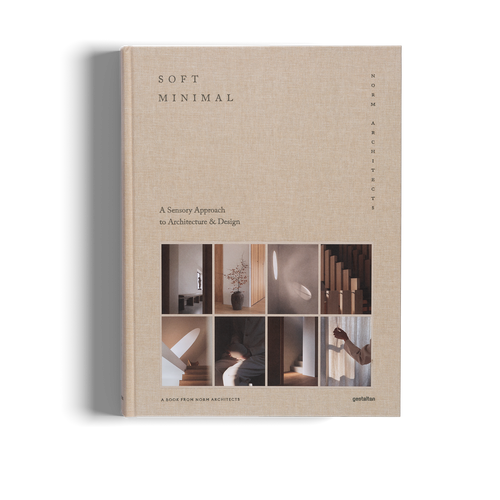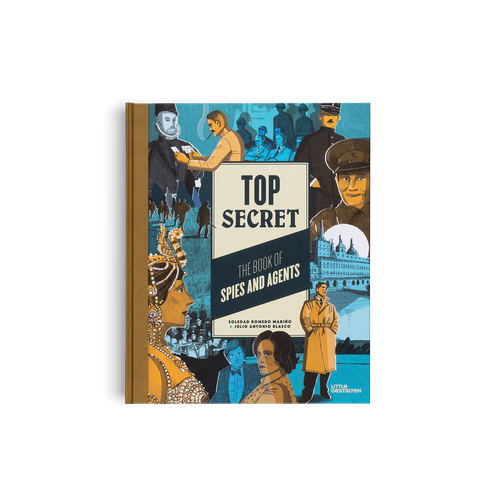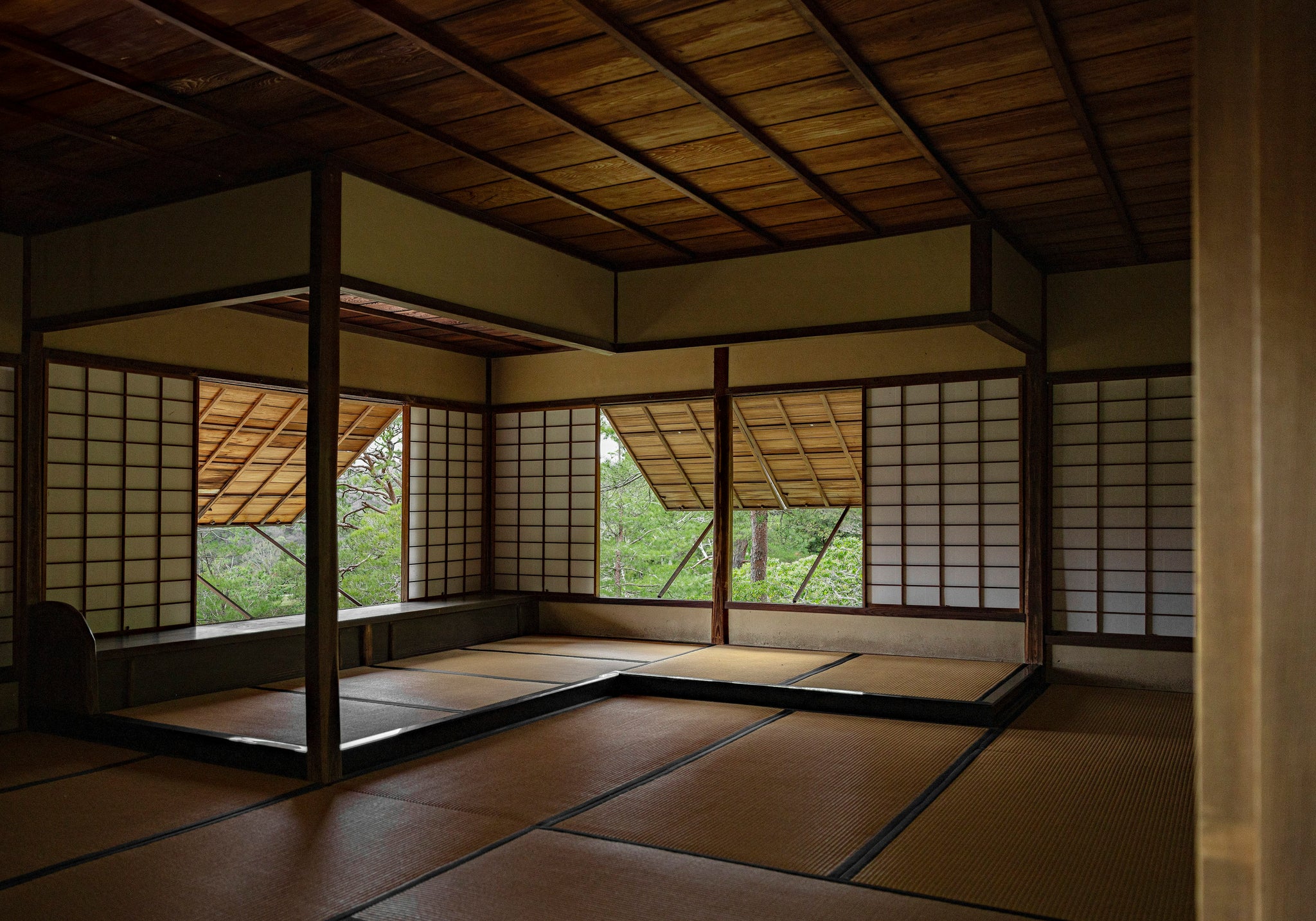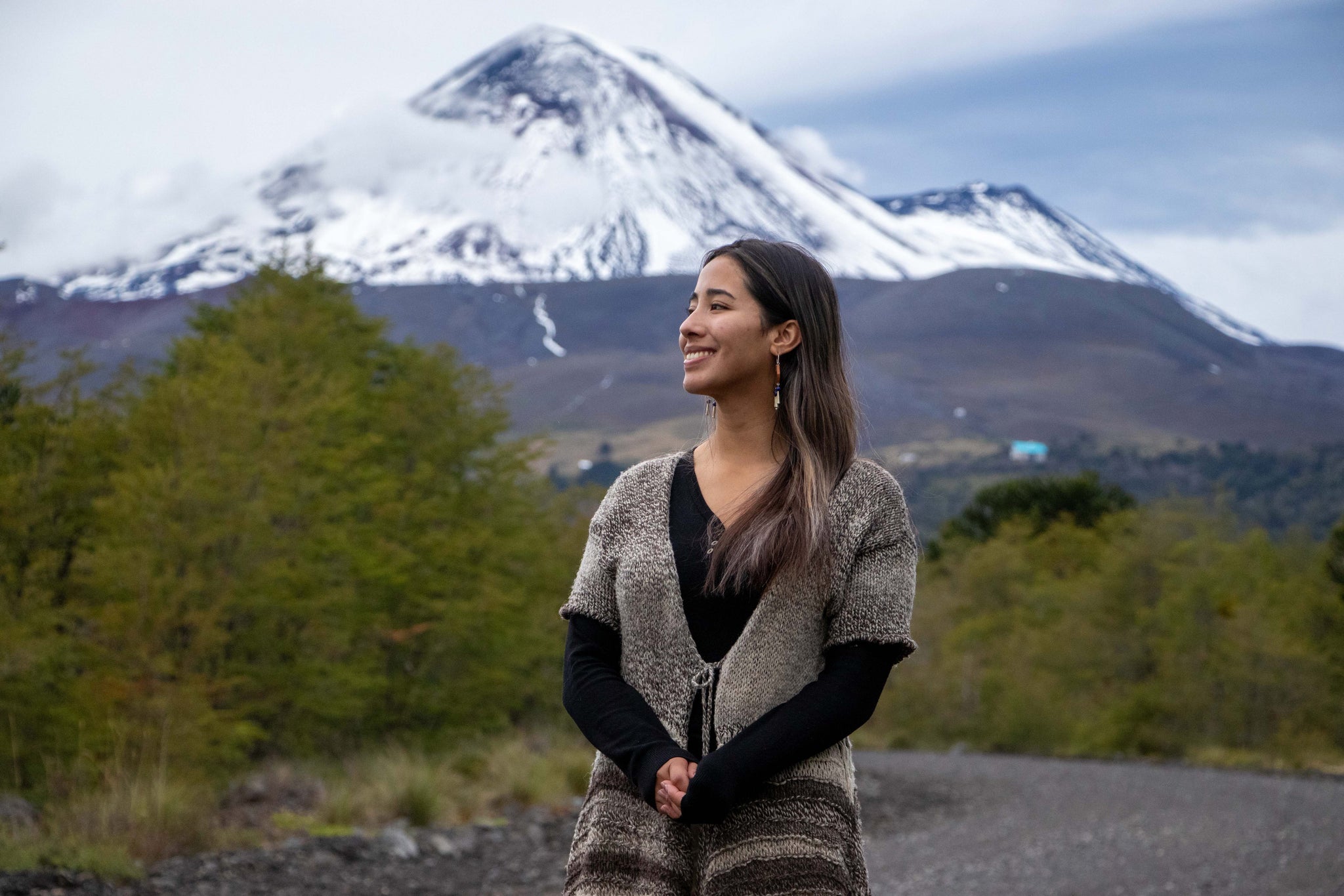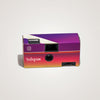
01/2019 visual culture
Instant messaging, the near real-time messaging through a standalone device or software, something so common and ingrained in our daily lives that we virtually take it for granted. We live in an era where we present all of ourselves online and forget most of the content we've consumed so swiftly that it begs to question, did it ever happen? So when Thomas Ollivier released a series of images that merge nostalgic gadgets with the technology giants of today, we decided to slow things down to grasp his concept of art on the subject.
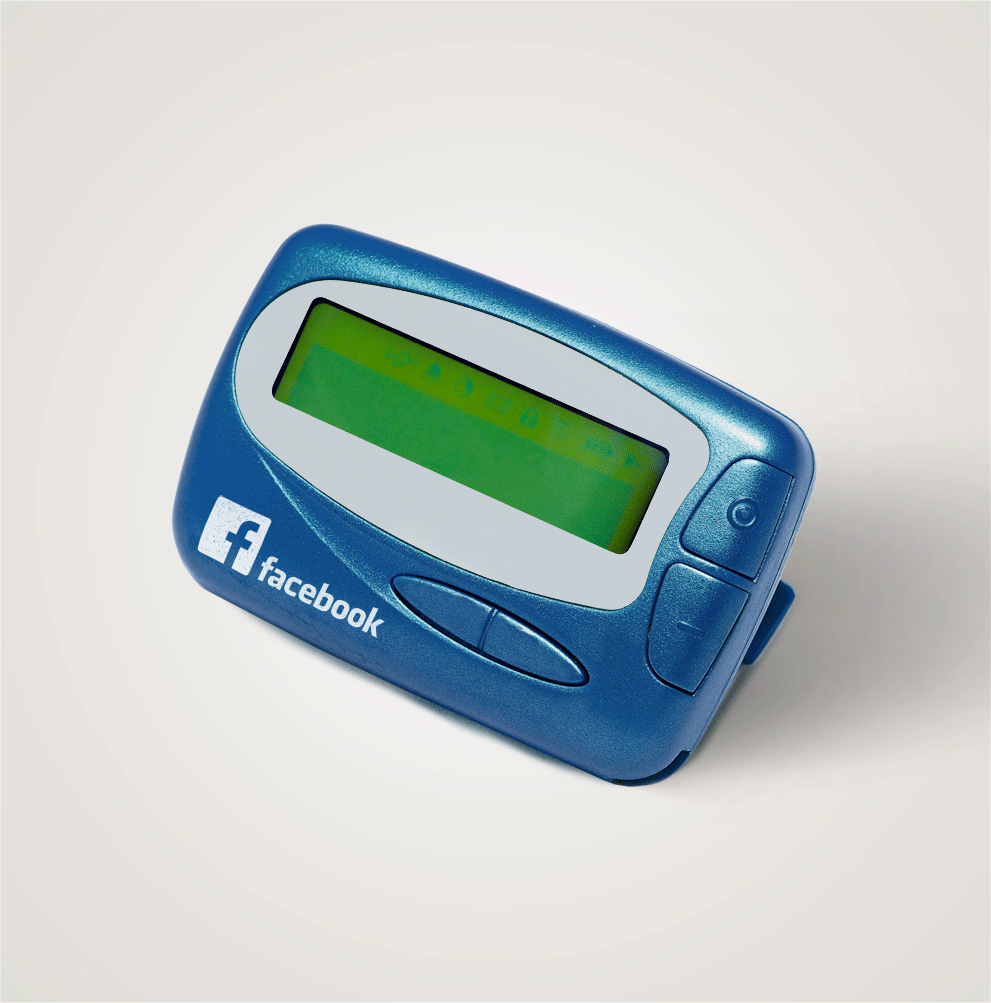
Ollivier used nostalgic devices and technology of yesteryear to visualize how modern applications have occupied much of our daily lives.
London-based creative and art director Ollivier's series Re:Birth is playful, relevant, and a thought-provoking time tunnel into the devices that helped shape what we now take for granted. What would technology look like in its 1980s heyday-self? Ollivier conceptualizes WhatsApp as a walkie-talkie, Spotify as a portable cassette player, Instagram as a disposable camera, and has repacked Netflix into a View-Master.
I started to design these “non-connected” devices to materialize the intangible nature of all the applications that have invaded our lives
His series opens up an interesting dialogue about our modern behaviors and how they would have been perceived three decades ago. Could you imagine children in the 1980s walking into school with photo albums of their dinner or selfies to show other classmates? In a way that we rarely question, technology created a vacuum to make these sort of behaviors okay, and over time, even mandatory if you want the algorithms to shower you with likes. With this in mind, we handed some questions over to Ollivier to find out what made him want to bring the 1980s aesthetic back, asking whether today's gadgets will stand the test of time, and balancing a life of advertising with art.

By bringing back iconic hardware, Ollivier has created a playful series that recalls some essential items to an older generation, depending on when you were born.
Can you tell us about your childhood, background, and how you got to where you are today?
If I have to condense it, I went from problems to solutions. But it doesn't mean that everything is sorted! I am self-taught and had a hard time with the education system.
Instagram, Spotify, and Netflix all reenvisioned in a 1980s aesthetic: Can you tell us where the idea came from and why you wanted to do it?
I started to design these “non-connected” devices to materialize the intangible nature of all the applications that have invaded our lives. But I wanted to anchor them visually in an era: the pre-internet nostalgia with its iconic hardware, which now becomes a symbol of my generation.
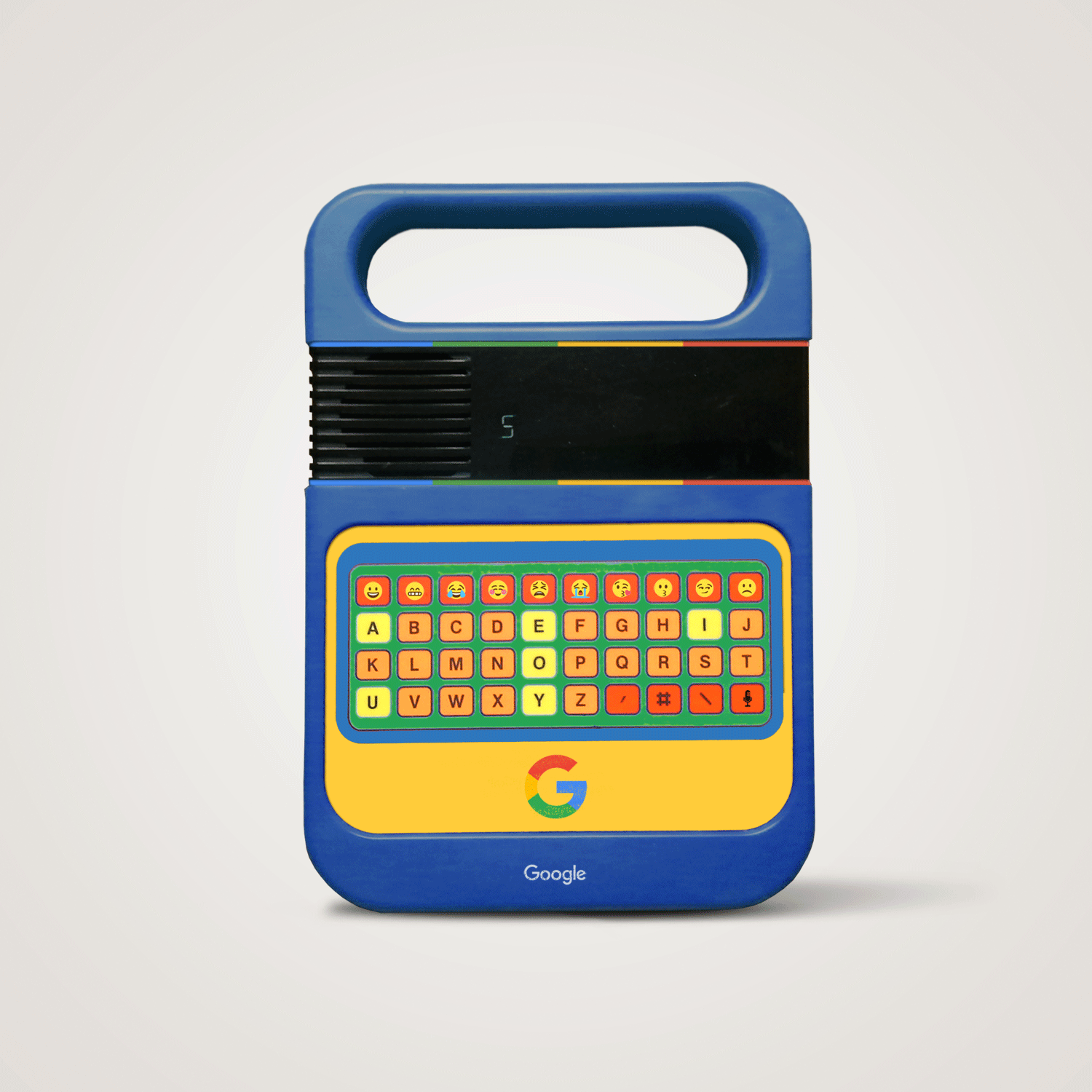
Re:Birth goes back in time to an era of having a handful of prized albums to listen to on repeat, using an encyclopedia or calculator to get answers, or a pager to alert you when someone desperately wanted to get hold of you.
Do you think people will look at iPads, mobile phones, and fashion with the same nostalgia as we do to 1980s devices?
I like the idea that the best tech should be invisible, sometimes when you look at VR sets, screens, selfie sticks etc., it doesn’t look that slick if we are objective, right?
Your Instagram bio says, “Reality is an illusion created by the lack of imagination.” What does this mean to you?
It means, "Don't let your day-to-day life interfere with what you really want to be doing." As a self-taught individual, it is important to find a way to forge your path, and this quote from Einstein had helped me, "Imagination is more important than knowledge."
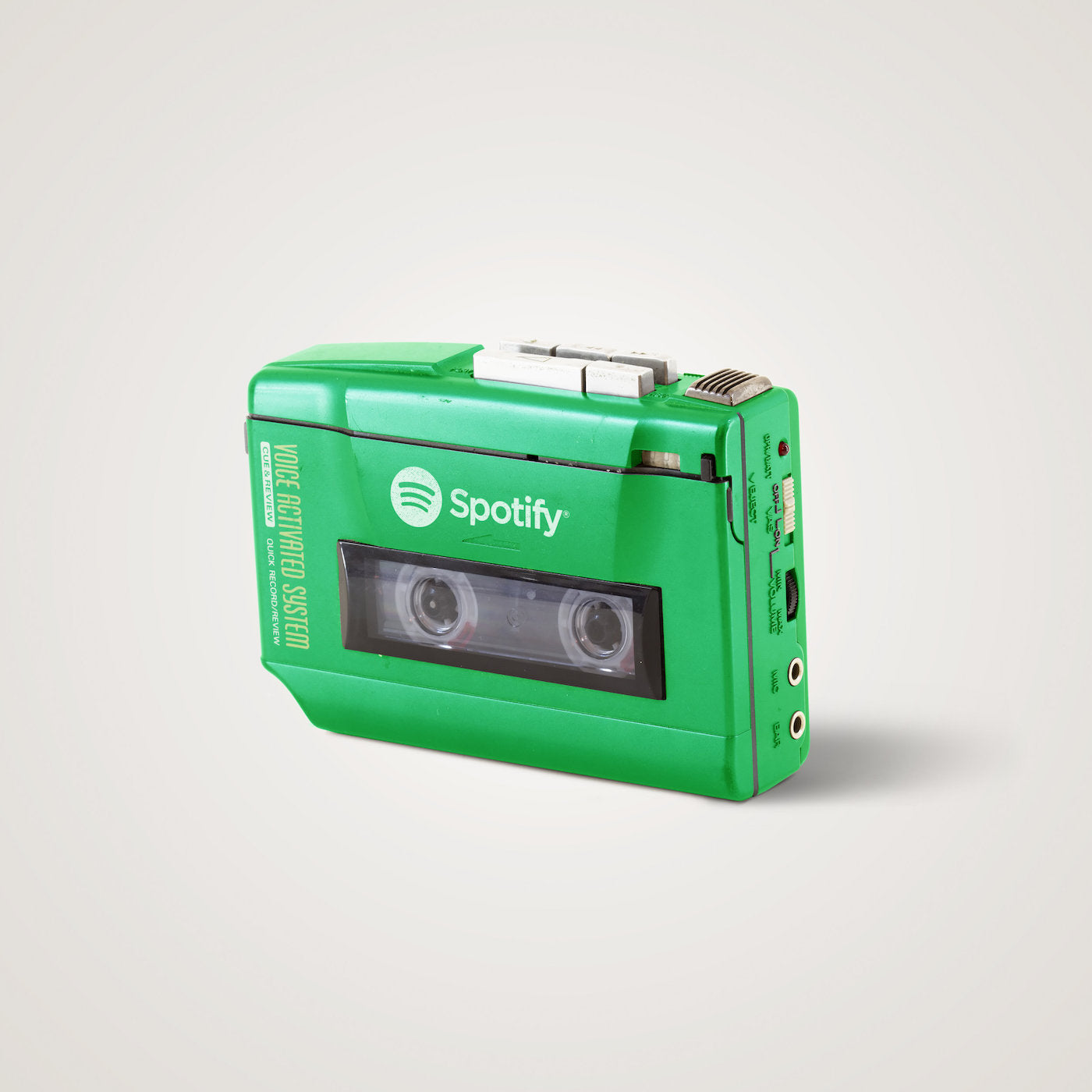
Although playful, this series does ask serious questions about our dependency on modern technology and whether or not that is a healthy balance.
How do you divide your personal and professional work in advertising?
They are two different things. Working in advertising is always responding to a brief, solving a problem through creativity and taking into account many objectives and considerations. My art projects are free of all this, when I have some thoughts that entertain me enough, I decide to produce them and to share them. The response has been very encouraging and I am learning from it.
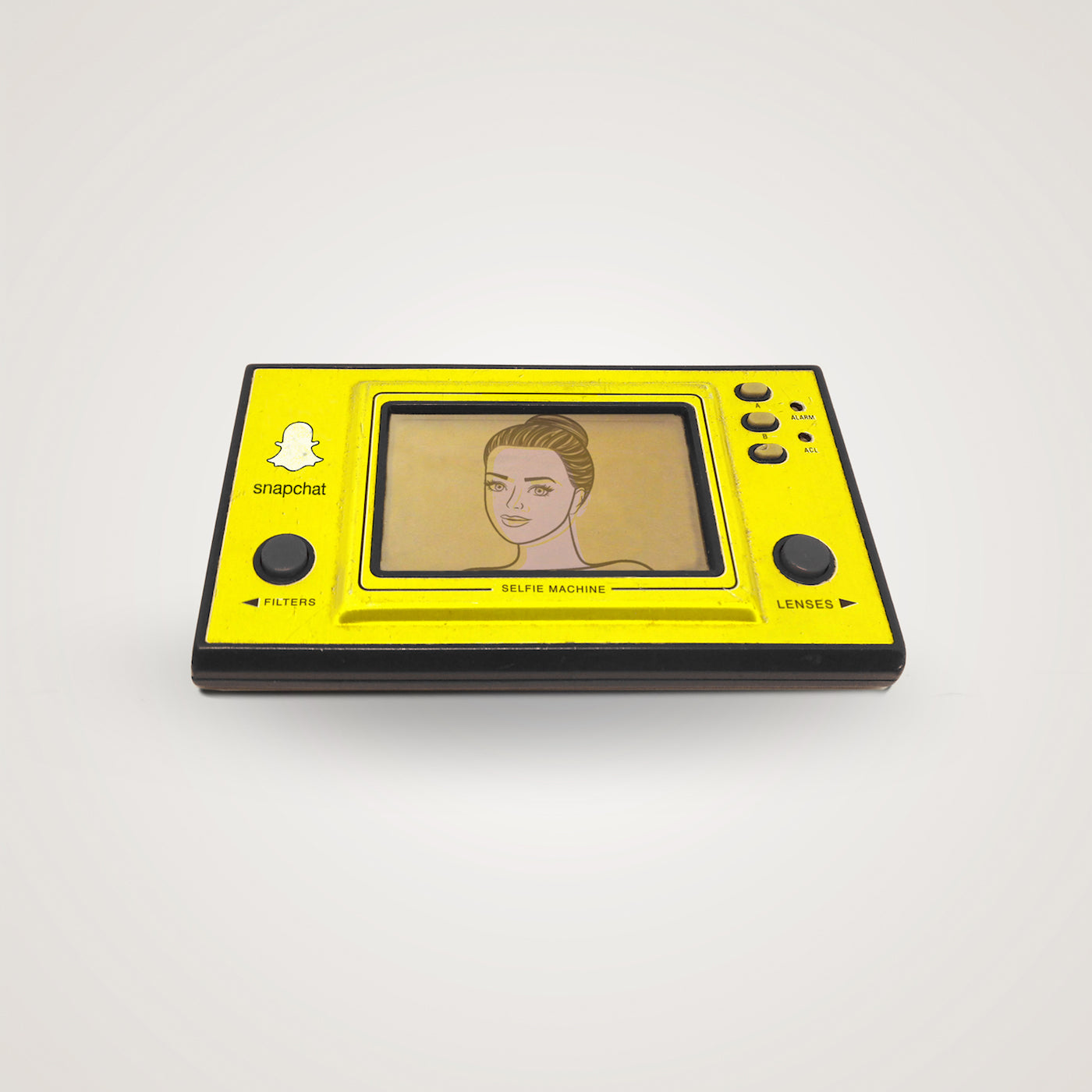
Just as the devices of yesteryear seemed crucial to our day-to-day lives, this series makes you wonder whether the technology we find crucial to our daily needs will still be there in two or three decades time.
Good content has to be original and bring something valuable to the viewer. A great idea will go far organically and that is the power of social media
Are you an analog or digital person?
Both, and truly enjoy both for what they are. Why choose?
You use branding in a clever way in everyday references such as wine bottles. What sort of feelings do you want your work to evoke?
These brands are part of our daily life, they have developed an intimate link with their consumers, and its this connexion that I want to explore.
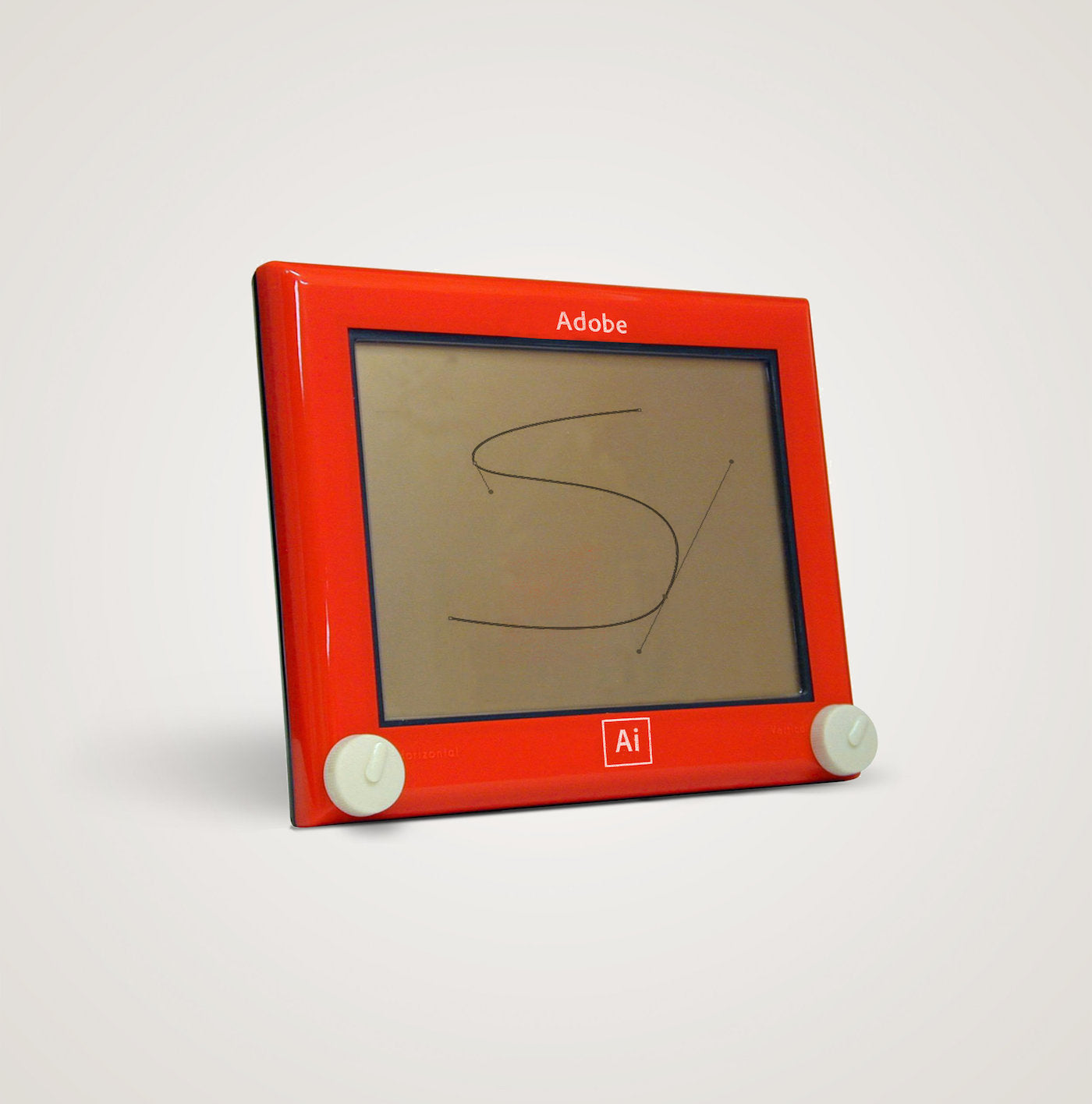
Ollivier is concerned about how modern technology has become a stable part of today's society, his series transports you back to a time when we were independent from these devices. Is this dependency valid?
You’ve been nominated for awards and featured in several publications for your advertising work. What makes good and engaging content to you?
Winning awards is good, but I find it much more meaningful to win people's interest and curiosity, or being part of a cultural conversation. Good content has to be original and bring something valuable to the viewer. A great idea will go far organically and that is the power of social media.
This nostalgic trip back in time to a pre-internet age

